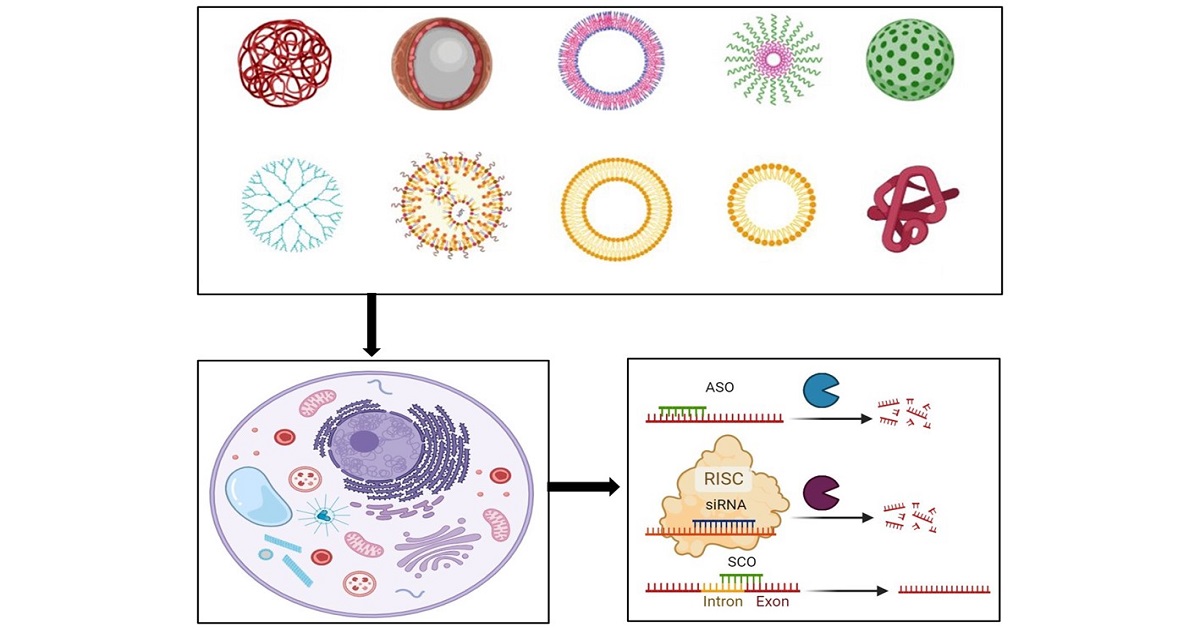Delivery of Oligonucleotide-Based Therapeutics
A special issue of Pharmaceutics (ISSN 1999-4923). This special issue belongs to the section "Gene and Cell Therapy".
Deadline for manuscript submissions: closed (30 June 2024) | Viewed by 312

Special Issue Editors
Interests: drug delivery; gene delivery; nanomedicine; cancer research; biomaterials
Special Issues, Collections and Topics in MDPI journals
Special Issue Information
Dear Colleagues,
Oligonucleotides are short nucleic acids that are capable of modulating gene expression via a range of different processes. This expands their range of targets beyond what is accessible to small molecule drugs. The different oligonucleotide-based therapeutic platforms include antisense oligonucleotides (ASOs), splice-correcting oligonucleotides (SCOs) and RNA interference (RNAi) including small interfering RNA (siRNA), short hairpin RNA (shRNA), and microRNA (miRNA).
The FDA approval of the first RNAi-based drug, Patisiran, in 2018, started a new era in oligonucleotide-based therapies. As of today, ten oligonucleotide-based drugs have received FDA approval and many more are under investigation for treatment of various diseases ranging from cancer and rare metabolic disease to cardiovascular and neurodegenerative diseases. However, the current delivery strategies mainly result in high abundance of oligonucleotides in the liver with low distribution to other tissues, which is a major obstacle for widespread clinical translation of oligonucleotide-based therapeutics. Therefore, development of advanced delivery platforms for highly efficient and targeted delivery of oligonucleotides to the extrahepatic tissues is one of the key challenges in gene therapy.
The aim of this Special Issue of Pharmaceutics is to present research papers addressing novel strategies for highly efficient delivery of oligonucleotide‐based therapeutics to different organs and tissues.
Dr. Roja Hadianamrei
Dr. David Rusling
Guest Editors
Manuscript Submission Information
Manuscripts should be submitted online at www.mdpi.com by registering and logging in to this website. Once you are registered, click here to go to the submission form. Manuscripts can be submitted until the deadline. All submissions that pass pre-check are peer-reviewed. Accepted papers will be published continuously in the journal (as soon as accepted) and will be listed together on the special issue website. Research articles, review articles as well as short communications are invited. For planned papers, a title and short abstract (about 100 words) can be sent to the Editorial Office for announcement on this website.
Submitted manuscripts should not have been published previously, nor be under consideration for publication elsewhere (except conference proceedings papers). All manuscripts are thoroughly refereed through a single-blind peer-review process. A guide for authors and other relevant information for submission of manuscripts is available on the Instructions for Authors page. Pharmaceutics is an international peer-reviewed open access monthly journal published by MDPI.
Please visit the Instructions for Authors page before submitting a manuscript. The Article Processing Charge (APC) for publication in this open access journal is 2900 CHF (Swiss Francs). Submitted papers should be well formatted and use good English. Authors may use MDPI's English editing service prior to publication or during author revisions.
Keywords
- oligonucleotide
- RNA interference
- small interfering RNA
- short hairpin RNA
- splice-correcting oligonucleotide
- gene delivery
Benefits of Publishing in a Special Issue
- Ease of navigation: Grouping papers by topic helps scholars navigate broad scope journals more efficiently.
- Greater discoverability: Special Issues support the reach and impact of scientific research. Articles in Special Issues are more discoverable and cited more frequently.
- Expansion of research network: Special Issues facilitate connections among authors, fostering scientific collaborations.
- External promotion: Articles in Special Issues are often promoted through the journal's social media, increasing their visibility.
- e-Book format: Special Issues with more than 10 articles can be published as dedicated e-books, ensuring wide and rapid dissemination.
Further information on MDPI's Special Issue policies can be found here.







